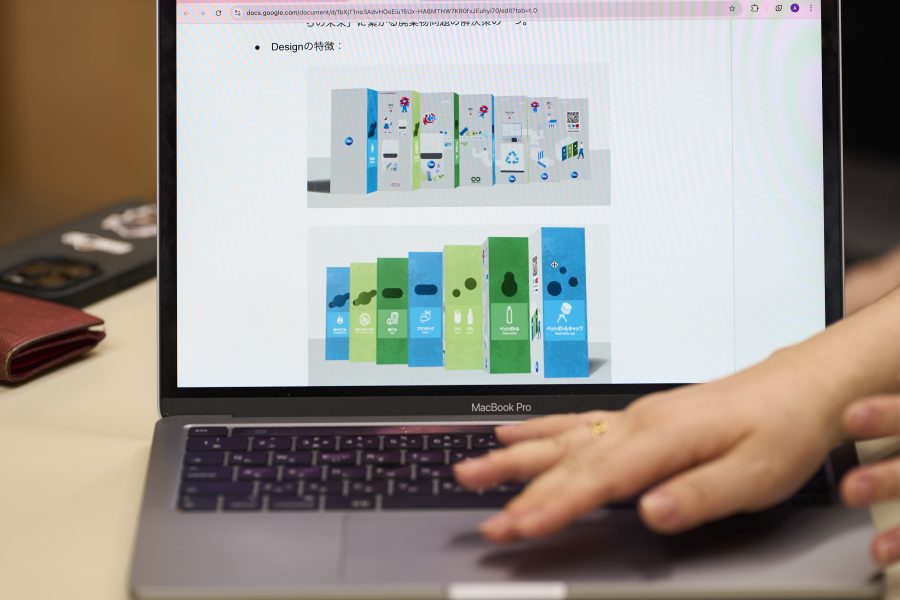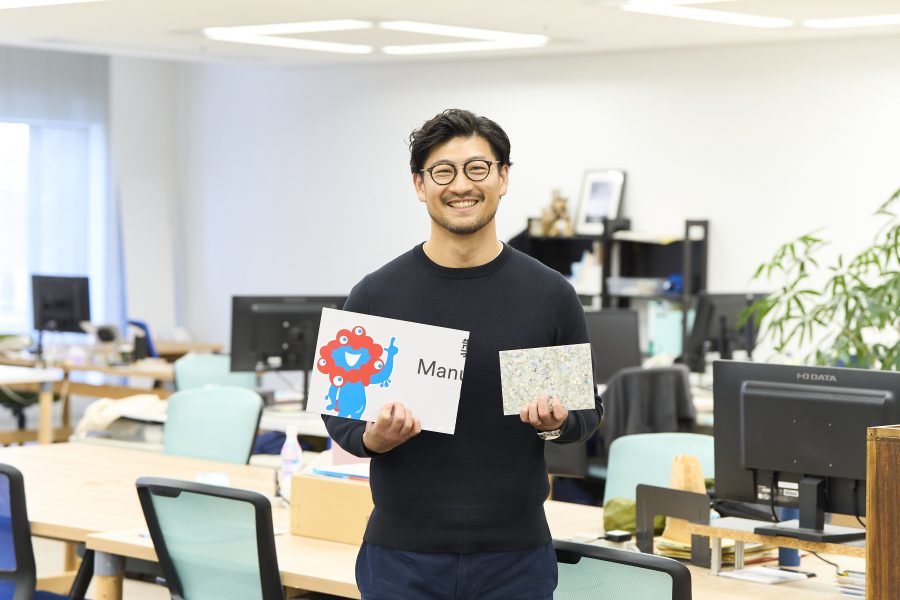
Conceptual image of completed trash boxes (resource collection boxes)
In December 2024, the representative of TerraCycle Japan was changed from Eric Kawabata to Koki Baba. Baba was born in Japan, but after graduating from elementary school, he relocated to New Zealand alone, being away from his parents, and flourished as a rugby player. After graduating from college, he returned to Japan, and he still plays rugby. Returning to Japan, he realized that “Japan is a beautiful country.” He said, “In Japanese elementary schools or the like, children clean their classrooms by themselves. I didn’t see such a custom in New Zealand. It seems that this custom is rare in the world.” Baba infers that such experience fosters a mindset of cleaning your own place by yourself. Accordingly, we hardly see a street strewn with trash, and all areas are kept clean, but Baba raised an issue: “Most citizens are not probably aware of how collected trash is disposed of.” He said, “If they come to know the fact that most of the sorted and collected trash is incinerated, they will be surprised.”
Trash boxes (resource collection boxes) are produced from the boards made of collected plastic containers, and supplied to the venue of the Expo. TerraCycle engages in this project in cooperation with AEON and P&G Japan, and general consumers have been helping them collect trash for one and a half years before the start of the Expo. Kawabata passed his baton to Baba, and Baba is proceeding with the project for enhancing people’s awareness of the sorting and recycling of trash (resources) and having people think over sustainable recycling of resources. A box is produced for each of seven categories: “combustible waste,” “non-combustible waste,” “paper trash,” “plastics,” “cans & glass bottles,” “plastic bottles,” and “plastic bottle caps,” and these boxes are assembled into a set. In addition to the sorting of waste into 7 categories, the process of recycling plastics and so on are illustrated on the boxes that are assembled in a zig-zag manner, to make the set more conspicuous and fashionable. If you read the two-dimensional code indicated on the trash box, you will be able to watch a video of the illustrated recycling process, and after watching it, there will appear the photo frame of MYAKU-MYAKU, the mascot of the Expo 2025 Osaka, Kansai, Japan, so that you will be able to take a photo with MYAKU-MYAKU.
Four sets of trash boxes to be provided by TerraCycle Japan are scheduled to be placed underneath the huge roof (Ring), which symbolizes the venue of the Expo. While looking ahead, Baba said robustly, “I hope that at the site where a lot of people and staff of enterprises gather from inside and outside Japan, they will come to know our sustainability project in which consumers and enterprises join hands to recycle waste.”

The processes of recycling (upper panel) and sorting waste into 7 categories (lower panel)
are illustrated on different faces.

Mr. Koki Baba, Representative of TerraCycle Japan
Share this article


